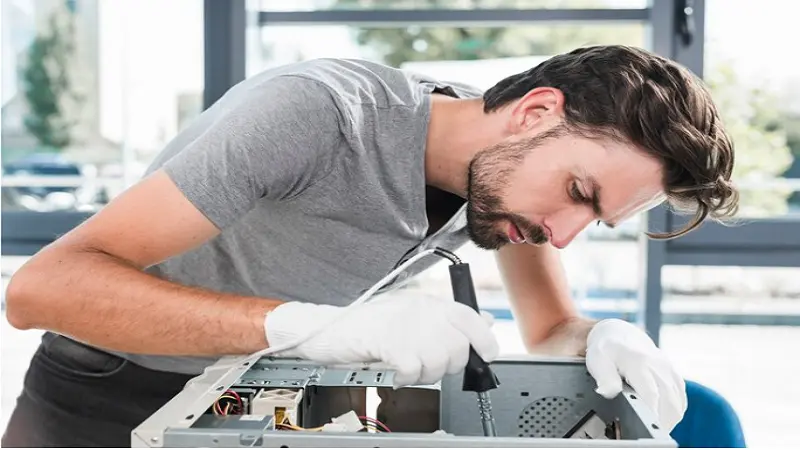Key Takeaways
- Learn how to identify and handle typical boiler problems.
- Gain insights into when to call a professional for boiler repairs.
- Discover tips to keep your boiler in top condition.
Introduction to Boiler Troubleshooting
Boilers are the unsung heroes of our homes, providing warmth and hot water throughout the year. These household appliances work tirelessly behind the scenes to ensure comfort, but they’re susceptible to problems just like any complicated machinery. Little issues can quickly escalate into expensive repairs if not addressed promptly. Understanding how to troubleshoot common boiler problems can save you time, money, and a whole lot of frustration. It’s always a good idea to familiarize yourself with the signs of malfunction before opting for professional boiler repair Chicago.
In Chicago, boiler repair services are crucial due to the city’s harsh winters, which demand efficient and reliable heating systems. Local technicians address common issues like pilot light problems, leaks, and pressure imbalances to ensure optimal performance. Many companies offer emergency services to quickly restore heat during unexpected breakdowns, ensuring residents stay warm and safe.
Common Boiler Issues
Boilers can face a variety of issues over their lifespan. Awareness of these common problems can help you identify and address them early on, potentially saving you significant inconvenience and expense. Below are some frequent boiler issues and their possible causes:
No Heat or Hot Water
Being without heat or hot water is one of the most annoying boiler issues and can seriously interfere with your everyday schedule. This issue could stem from various reasons, including broken diaphragms, airlocks, low water levels, or malfunctioning motorized valves. Additionally, checking the thermostat settings to ensure they are correct can be a quick solution. Sometimes, the central heating system could operate correctly, but the hot water supply is not, suggesting a possible problem with your diverter valve.
Leaking and Dripping
Leaks can occur from several places in your boiler system, indicating issues that need immediate attention. Excessively high boiler pressure could lead to water being forced out of the system. Corrosion, or the age of the system, may also contribute to parts cracking and leaking over time. Finding the source of the leak will enable you to assess whether the boiler needs to have parts replaced or if they can be fixed quickly.
Thermostat Issues
Sometimes, the problem isn’t with the boiler itself but with the thermostat. If the thermostat isn’t accurate or functioning, it can lead to incorrect temperature settings and uneven heating across your home. Thermostats can malfunction due to old age, wiring issues, or simply becoming outdated. If your thermostat is over a decade old, it may be time to consider an upgrade to a more modern, programmable version.
Boiler Making Strange Noises
Heard a whistling or banging noise coming from your boiler? These noises can be concerning and may result from air in the system, low water pressure, or a faulty pump. A gurgling sound can indicate trapped air while whistling (also known as kettling) often suggests limescale build-up on the heat exchanger. Regular maintenance can prevent these issues, as well as extend the lifespan of your boiler.
Low Boiler Pressure
If the pressure gauge reads below 1, your boiler could run inefficiently and even fail to operate. Low boiler pressure can result from leaks, bleeding radiators, or newly installed components. Sometimes, simply topping up the pressure with the filling loop can resolve the issue. Always refer to your boiler’s manual to guide you through this process, as it can vary for different models.
DIY Troubleshooting Tips
Before you call in the professionals, there are some basic troubleshooting steps you can take. Simple checks and minor repairs can often resolve the issue and save you from the expense of a technician’s visit:
Checking Thermostats and Controls
Set the thermostat to the desired temperature and make sure it is communicating correctly with the boiler. Sometimes, simple battery replacements or recalibration can resolve issues. It’s also important to ensure that the thermostat is located in an appropriate area—away from radiators, direct sunlight, or drafts—as these can affect its readings. Trusted sources like House Beautiful recommend checking the connection between the boiler and thermostat to troubleshoot communication errors.
Inspecting Boiler Pressure
Check the pressure gauge and, if necessary, top it up to the recommended levels. Follow your boiler’s manual for specific instructions. Keep an eye on the pressure over the next few days to ensure it remains constant. A sudden drop could indicate a more significant issue, such as a leak in the system.
Bleeding Radiators
Trapped air in the system can cause your radiators to heat up unevenly, creating cold spots. Bleeding your radiators can eliminate this air, leading to more efficient heating. To release the trapped air, switch off your heating system first and then use a radiator key. A hissing sound, which denotes air exiting, should be heard. As soon as water starts to leak out, quickly close the valve.
When to Call a Professional
While DIY troubleshooting can resolve a lot of minor issues, there’s a time when professional intervention is necessary. If you encounter major leaks or electrical issues, or the boiler continues to malfunction despite your efforts, it’s time to call in an expert. Expert technicians possess the knowledge and resources necessary to identify and resolve intricate issues that are beyond the purview of do-it-yourself fixes.
